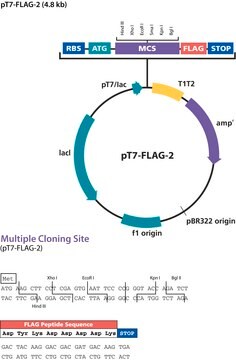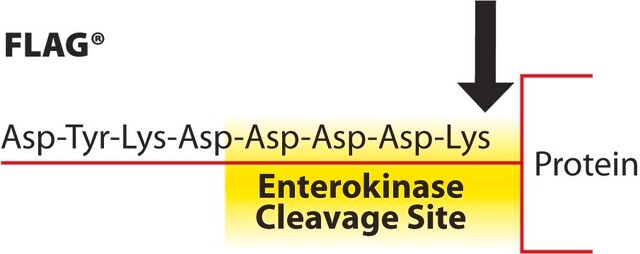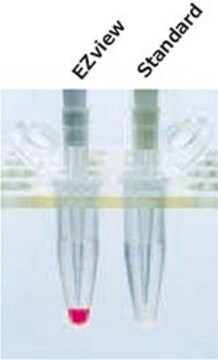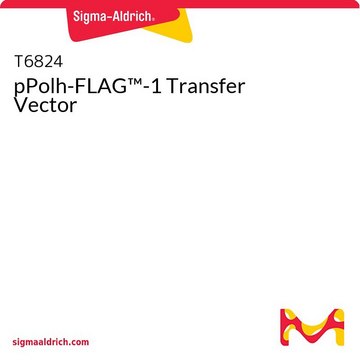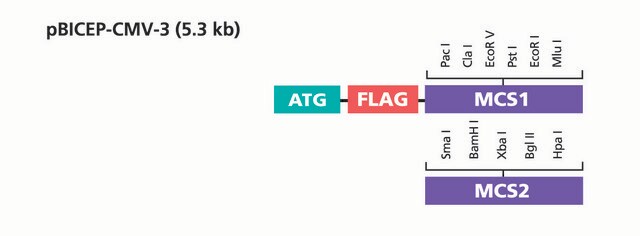OGS3213
PSF-CMV-PURO-NH2-FLAG® - N-TERMINAL FLAG® TAG MAMMALIAN PLASMID
plasmid vector for molecular cloning
Synonym(e):
cloning vector, expression vector, molecular cloning vector, plasmid, plasmid vector, snapfast vector, vector
About This Item
Empfohlene Produkte
Markierung
FLAG® tagged
Form
buffered aqueous solution
Mol-Gew.
size 6173 bp
Bakterienauswahl
kanamycin
Säugerzellenauswahl
puromycin
Replikationsursprung
pUC (500 copies)
Peptidspaltung
no cleavage
Lage der Peptid-Tags
N-terminal
Promoter
Promoter name: CMV
Promoter activity: constitutive
Promoter type: mammalian
Reportergen
none
Versandbedingung
ambient
Lagertemp.
−20°C
Allgemeine Beschreibung
About the Peptide Tag:This plasmid contains an n-terminal FLAG epitope tag that can be fused to a gene of interest to allow protein detection and/or purification. The sequence of the tag is: DYKDDDDK.
Promoter Expression Level: This plasmid contains the mammalian CMV promoter to drive gene expression. We have tested all of our mammalian promoters in a range of cell types and CMV is consistently the strongest in those we have studied. However there are many reports of the CMV promoter demonstrating silencing by methylation in long-term culture.
Sequenz
Hinweis zur Analyse
Rechtliche Hinweise
Ähnliches Produkt
Lagerklassenschlüssel
12 - Non Combustible Liquids
Flammpunkt (°F)
Not applicable
Flammpunkt (°C)
Not applicable
Analysenzertifikate (COA)
Suchen Sie nach Analysenzertifikate (COA), indem Sie die Lot-/Chargennummer des Produkts eingeben. Lot- und Chargennummern sind auf dem Produktetikett hinter den Wörtern ‘Lot’ oder ‘Batch’ (Lot oder Charge) zu finden.
Besitzen Sie dieses Produkt bereits?
In der Dokumentenbibliothek finden Sie die Dokumentation zu den Produkten, die Sie kürzlich erworben haben.
Unser Team von Wissenschaftlern verfügt über Erfahrung in allen Forschungsbereichen einschließlich Life Science, Materialwissenschaften, chemischer Synthese, Chromatographie, Analytik und vielen mehr..
Setzen Sie sich mit dem technischen Dienst in Verbindung.
